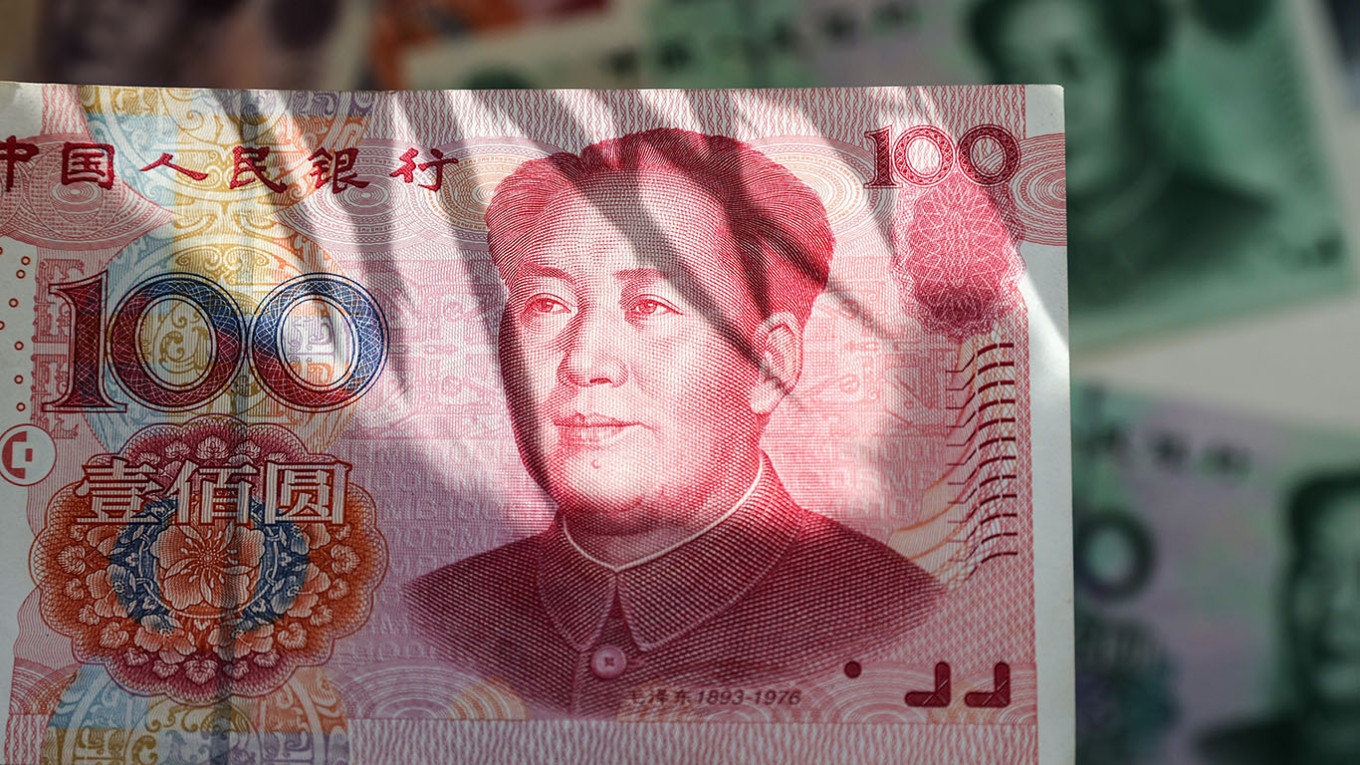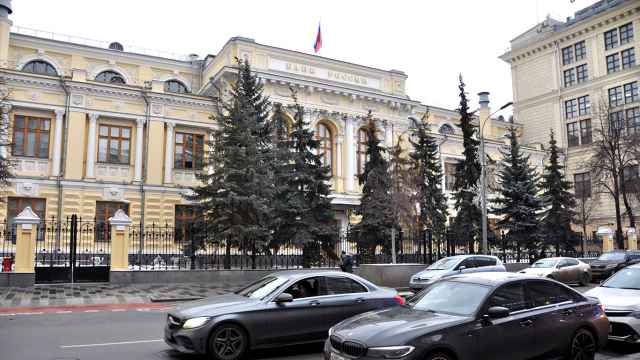Russia’s Finance Ministry and the Central Bank will increase the sales of Chinese yuan on the domestic foreign exchange market to 8.4 billion rubles daily from Oct. 7 to Nov. 6, making a net intervention of 5.3 billion rubles worth of CNY sales, Renaissance Capital wrote on Oct. 4.
In a separate report, The Bell wrote that the Russian domestic market saw a yuan liquidity shortage in the summer as some large exporters turned to borrowing in CNY amid ruble interest rates approaching 20%.
In May 2024, the share of transactions involving yuan on the Moscow Exchange (MOEX) had reached 54%. After U.S. sanctions were imposed on MOEX this summer, that figure soared to 99.8% (to compare, before the full-scale military invasion of Ukraine, over 80% of currency transactions were in U.S. dollars, with the remainder in euros).
In 2024, the average interest rate on corporate loans in rubles for large borrowers amounts to 17.17% for loans under one year and 14.74% for loans over one year. The rates for yuan-denominated loans are much lower at 7.11% and 8% respectively (79% of these loans are for terms under one year).
However, in the summer of 2024 the Russian currency market faced a shortage of yuan liquidity, as demand for the Chinese currency outstripped supply and banks could not cover their open currency positions. This liquidity shortage peaked in September, with the rate on one-day yuan repo operations surging to over 212% on some trading days.
In the meantime, the Russian Central Bank reportedly increased the cost of ruble-yuan currency swaps. In September, Deputy Central Bank Governor Alexei Zabotkin argued that swaps should not be used by banks to solve their own funding issues under the false pretense of addressing liquidity problems.
Liquidity is a bank's ability to make payments in the currency requested by a client, while funding relates to the balance structure between deposits and loans in a particular currency.
“This is where the ball is in the banks' court — they need to ensure that their lending activity aligns with their ability to attract foreign currency liabilities,” Zabotkin argued, suggesting that the banks source the currency they need on their own.
However, how there would be enough yuan accumulated inside Russia to form a deposit base for the currency is unclear, the analysts surveyed by The Bell said.
In addition, the yuan liquidity can be moved by large debt issues, such as Rosneft’s yuan-denominated bonds worth 15 billion rubles that matured on Sept. 20 and had bondholding banks scramble to accumulate yuan to cover Rosneft’s obligations.
This article was originally published by bne IntelliNews.
A Message from The Moscow Times:
Dear readers,
We are facing unprecedented challenges. Russia's Prosecutor General's Office has designated The Moscow Times as an "undesirable" organization, criminalizing our work and putting our staff at risk of prosecution. This follows our earlier unjust labeling as a "foreign agent."
These actions are direct attempts to silence independent journalism in Russia. The authorities claim our work "discredits the decisions of the Russian leadership." We see things differently: we strive to provide accurate, unbiased reporting on Russia.
We, the journalists of The Moscow Times, refuse to be silenced. But to continue our work, we need your help.
Your support, no matter how small, makes a world of difference. If you can, please support us monthly starting from just $2. It's quick to set up, and every contribution makes a significant impact.
By supporting The Moscow Times, you're defending open, independent journalism in the face of repression. Thank you for standing with us.
Remind me later.






